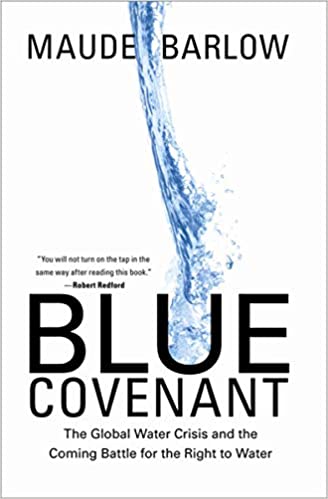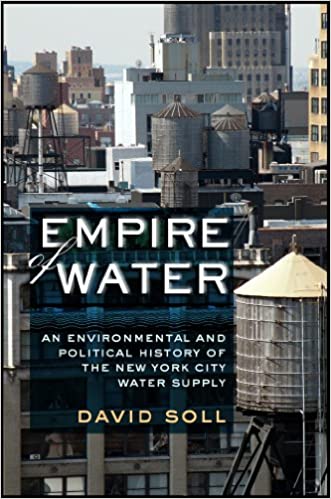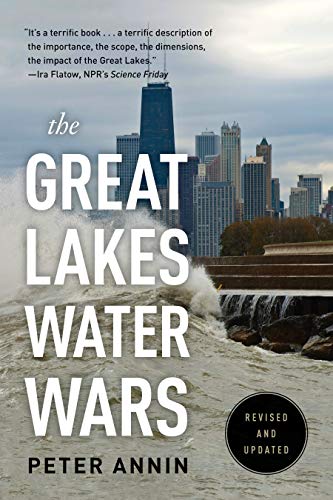
April 4, 2015Second Suit Filed Challenging Implementation of NY's New Water Permitting LawSierra Club and Hudson River Fisherman’s Association (HRFA) filed a second lawsuit challenging the procedures being followed by the New York State Department of Environmental Conservation (DEC) in issuing water withdrawal permits. The Article 78 proceeding, Sierra Club and HRFA v. Martens (Martens II), was filed on March 23, 2015 in New York County Supreme Court, Index No. 100524-2015. The proceeding challenges DEC's issuance of a water withdrawal permit to Consolidated Edison for its East River generating station to take up to 373 million gallons of water per day from the East River in the Hudson River estuary for operation of its once through cooling system. Joseph Martens is the DEC Commissioner. The groups' first lawsuit challenging DEC's water withdrawal permitting procedures was Sierra Club and HRFA v. Martens (Martens I), filed February 2014 in Queens County Supreme Court, Index No. 2949-14. Martens I challenged DEC's procedures in issuing a water withdrawal permit to TransCanada for its Ravenswood Generating Station to take more than 1.5 billion gallons per day from the East River. The Ravenswood permit was the first permit issued to a non-public user under New York's new water withdrawal permitting law. The case was decided against the petitioners in October 2014 and is being appealed to the Appellate Division, Second Department. See Appeal of Adverse Ruling in First Suit Filed Challenging Implementation of NY's New Water Permitting Law. The legal arguments in both lawsuits are the same. The proceedings assert that DEC's issuance of each permit violated the the Water Resources Law (WRL), New York's water withdrawal permitting law, the State Environmental Quality Review Act (SEQRA), state and city coastal zone laws and DEC's public trust responsibilities, and that these violations occurred because DEC failed to consider the impacts on other users and the estuary of the huge withdrawals authorized by the permits and failed to include necessary water conservation conditions in the permits. Both lawsuits assert that DEC's decision to exempt existing users from the requirements of the water withdrawal permitting law enacted by the New York legislature in 2011 is contrary to the clear wording of the law and to the clear wording of DEC's implementing regulations which became effective in 2013. The cases turn on the interpretation of the section of the water permitting law that specifies the requirements that apply to permits issued to existing water users, i.e. users already taking water from New York's rivers, lakes, streams and aquifers. Section 15-1501(9) of the Environmental Conservation Law (ECL) provides that DEC "shall issue an initial permit [i.e., permits issued to existing users], subject to appropriate terms and conditions as required under this article, to any person not exempt from the permitting requirements of this section, for the maximum water withdrawal capacity reported to the department [emphasis added]." In response to Petitioners' assertions that DEC failed to set appropriate terms and conditions in the Con Ed and Ravenswood permits, DEC argues that ECL 15-1501(9) gives it no discretion but to issue permits to existing users and that, because it must issue the permits, DEC is not able to set individualized terms and conditions for existing users. On the ground that it has no discretion in issuing permits to existing users, DEC argues that the issuance of such permits is exempt from review under SEQRA. The SEQRA regulations specify that purely ministerial actions are exempt from SEQRA review. Because DEC claims that the issuance of water withdrawal permits to existing users is exempt from SEQRA, DEC asserts that issuance of such permits is also exempt from review under state and city coastal zone laws, which reviews only apply to actions subject to SEQRA review. Petitioners assert that DEC does have discretion in setting the terms and conditions in permits issued to existing users and that issuance of such permits is not exempt from review under SEQRA or the state and city coastal zone laws. The Sierra Club press release on the Martens II suit is posted here. The petition is posted here. I am working with attorney Richard J. Lippes from Buffalo to represent the Petitioners in both suits, along with attorneys Gary Abraham and Jonathan Geballe in Martens I. Posted by Rachel Treichler on 04/04/15, updated 04/14/20. Updated 12/04/21.
Copyright 2021, Rachel Treichler
|
|






